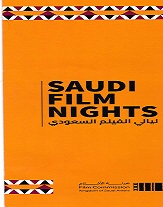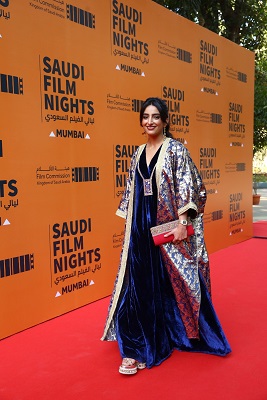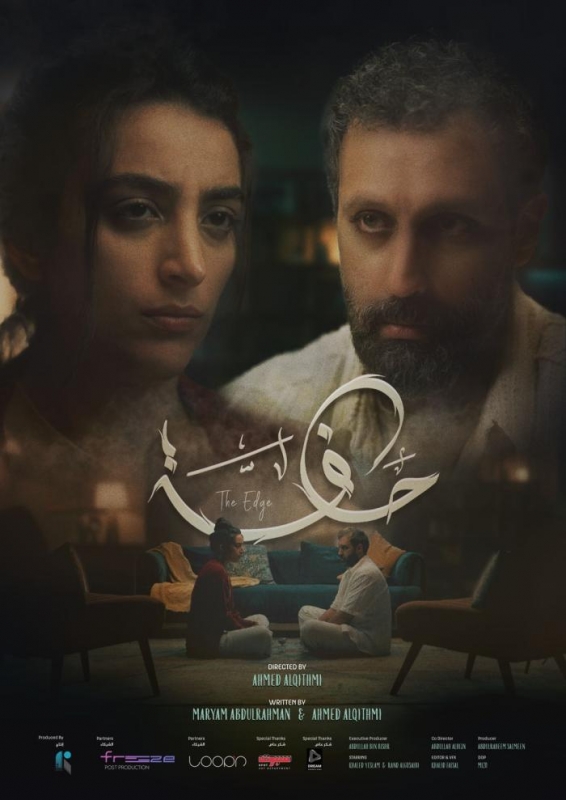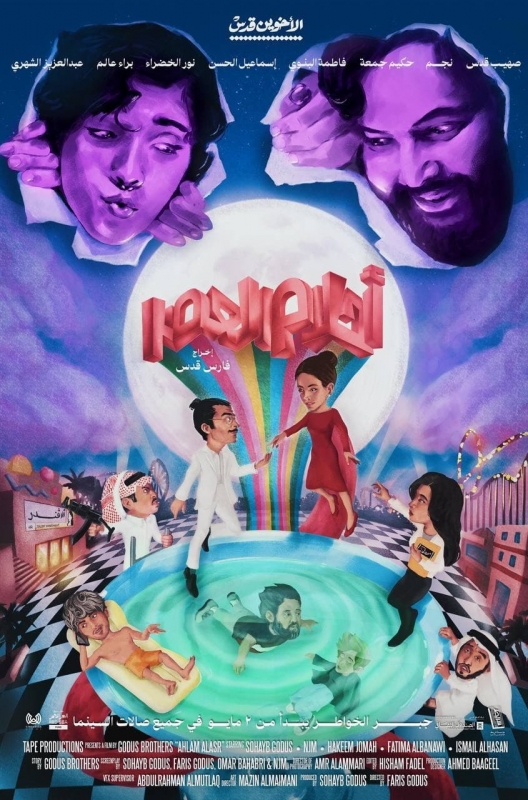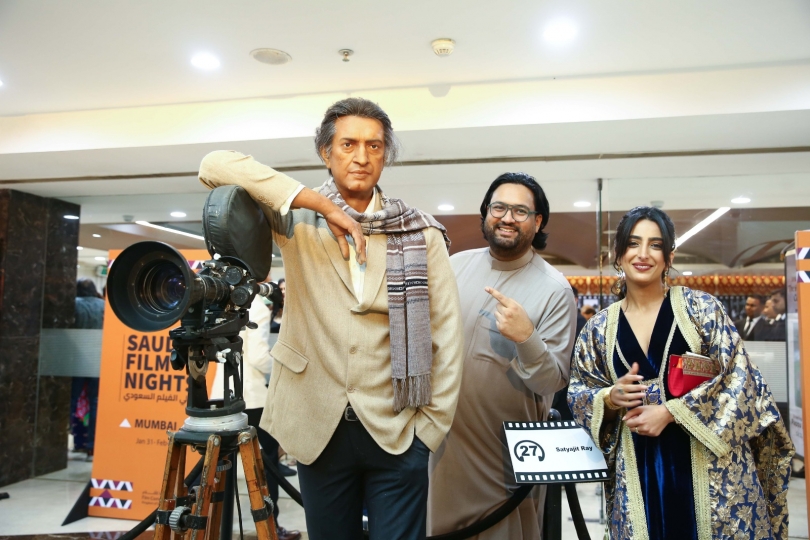|
|
||
|
Pro Tools
FILMFESTIVALS | 24/7 world wide coverageWelcome ! Enjoy the best of both worlds: Film & Festival News, exploring the best of the film festivals community. Launched in 1995, relentlessly connecting films to festivals, documenting and promoting festivals worldwide. Working on an upgrade soon. For collaboration, editorial contributions, or publicity, please send us an email here. User login |
Saudi Nights, A Report: The ecstasy and the agony
Saudi Nights, A Report: The ecstasy and the agony If the mountain will not come to Mohammed, Mohammed must go to the mountain, goes the adage. Since Saudi Arabian films were not coming to India, I went to Saudi Arabia in 2023, to attend the 2nd Red Sea International Film Festival (RSIFF), in Jeddah, Saudi Arabia. There, I saw Saudi Arabian, and many other films, from all over the world, in what was one of the grandest, most hospitable film festivals I have ever attended. And no, I have never been to Cannes. It was too much to expect the organisers of RSIFF to invite me again, in 2024, so I have pinned my hopes on the 2025 event, which will be held at the end of the year. But the unexpected happened. The mountain came to Mohammed. Out of the blue, I got an invitation to attend Saudi Film Nights, a two-day showcase of four Saudi Arabian films, to be held at the National Film Development Corporation’s auditorium at Peddar Road, two films each on the 31st January and 1st February. An initiative of the Saudi Film Commission, similar events were scheduled to follow at Delhi and Hyderabad. Added attractions were buffets (mentioned twice), and cocktails. The screenings were to be preceded with press conferences and red carpets. The intimation about the press conference came at the last minute, and clashed with a local film press preview, so I could not make it time. As it turned out, the ‘press conference started about an hour late, a few minutes before I reached. It was not much of a press conference. In fact, it was not a press conference at all. A lady called Mansi Varma, who described herself as a singer, put questions to the persons seated against the display of the event. There were a few chairs, all taken, and at least 15 camerapersons, who, obviously, did not need chairs. Several persons, like me, had to stand. I could spot only one known print/web journalist face among the crowd, so the count was two. It remained so till the end. Locally organised by Dome Entertainment, represented by Mohomed Morani and Mazhar Nadiadwala, the Saudi presence consisted of the Consul in Mumbai and two actors, both of whom fielded questions put to them by Mansi. Come to think of it, Mansi did a wonderful job, and could consider a career as an anchor, alongside her singing prospects.
I was perhaps the only person other than Mansi who asked a question, addressed to Rand, the svelte actress whose short film Edge was to be the inaugural movie. I asked her whether she had been exposed to Indian films, and if so, who were her favourite actresses and directors. She parried the question about directors, and when it came to actors, she came-up with the obvious, “ShahRukh Khan”. “Actresses…,” I persisted. “Kareena Kapoor”. Both answers totally expected and predictable. Rand had seen only about a dozen Hindi films in her life, so can you blame her for not having a more eclectic choice? Cinema, in its reincarnation, is new to Saudi Arabia, and is only about eight years old. Cinemas were banned for 35 years, until the first cinema in Saudi Arabia opened, on 18 April 2018, in Riyadh. Film buffs like Sohayb Godus, who shared the make-shift dais with a couple of dignitaries, and whose film Fever Dream, shown at RSIFF, was the feature billed for screening after The Edge, used to cross over to neighbouring Bahrain and watch five films in one day, to make-up for the complete drought back home. Rand Algosaibi, his compatriot on the India tour, is known for her comedic roles, though her film Edge is anything but comedy. After the interaction, we had cocktails and snacks. Cocktails? I think the printers’ devil got them. Mocktails was more like it. The snacks had exotic monikers, but I avoid anything about which I know little. No tea, no coffee, sorely missed. No buffet either. Sohayb, who has produced and stars in Fever Dream, joined us on the table and asked for tips on what to see in Mumbai and Delhi, over the next two days. He was curious to know the roots of my name, for Siraj is an Arabic word. It is, indeed, Arabic. Centuries ago, my ancestors must have come to India, from Arabia and Iran, though the borders then have no semblance to the globe of the world today.
It was all expectancy and, allowing for the usual niggles, a touch of ecstasy, as we moved into the auditorium, which was packed. After a further wait, The Edge finally hit the screen. It is about a couple wherein the man is a life sciences coach, and a womaniser, working late hours, while his wife misses his presence and company. All of a sudden, one day, he decides that he must make-up to her, and wants to talk seriously, "We need to talk." It is then that all she has been doing for him and the pangs of missing him surface in surreal motion, through her outpourings, including a crane shot that took two hours, spanned more than 180 degrees, for a less than one-minute of screen time. There is a subtle touch to suggest intimacy between the man and one of his students, when both are standing close to, and facing, each other and the woman rises on her barefoot toes, with the camera at a low angle. In essence, the film contrasted the outside life a man who helps people live a better life as part of his profession, while at home, he ignores his loving wife to the extreme, the Edge. Obviously, both The Edge and Fever Dreams were sub-titled in English.
Khalid Yeslam played the man and, after the screening, during a Q&A, a female member of the audience went gooey about him, “He’s so good looking,” she gushed. “That’s the problem,” said Rand. “He knows he is good looking.” Rand was the wife in this two-actor, seven-minute short, which ended before the audience could ingest and digest the fare. Not surprisingly, the film is written by a woman, Mariyam Abdulrahman. It is directed by Ahmed Alqithmi, which responds to a masculine name. While the film scored on technique, it had pretty little to say, and keeping it at seven minutes was a wise decision. But when you have only seven minutes to play with, you better load your dice high. Good looking married men neglecting their wives is not a new theme, nor a new reality, therefore the film needed something more than just the conversation and the camera calisthenics. Yeslam improvised the end and put a reassuring arm around Rand as the film faded out. That was a good touch, and would have been missed had it not been included. Rand felt that the universal feeling of grief that it brought out would resonate well with foreign audiences too, especially Indian. That’s undeniable, especially among women in similar situations. Overall the film rated average on cinema aesthetics and was nothing to shout about. The ecstasy was already waning a bit when we were catapulted into Fever Dream, which does full justice to its title. It is the kind of film that one might make in a fit of delirious fever. Nothing will prepare you for this film, unless, perhaps, you have read this piece. English, and most other languages, are intelligible when spoken at 120-150 words per minute. Fever Dream hovers in the 300 w.p.m. range. That means that the sub-titles are as fast, and do not allow the audience enough time to read full lines. There is a theme, a plot, a narrative, a story, a premise; but all of these are so muddled up that you need to split hairs to make sense out of the goings on. A disgraced, notorious, retired, ace footballer loses his wife early in their marriage, and takes to the bottle. He has a teenage daughter, who lives in the world of social media and ‘likes’, tik tok and reels, and hates her parent. The director often starts a scene and leaves it halfway, only to come back to it in full blast much later. Sohayb had said that the film was about incompleteness that most humans experience, and so the characters had no back story, except for the footballer. However, that need not translate as incomplete shots and scenes, repeated ad infinitum.
After about an hour of cacophony, the film gets into the substance of the story: an unscrupulous man’s plan to swindle people by promising them villas in an idyllic location called Visionland, and his ploy of using the footballer to sell various products for his marketing agency, including the Visionland villas. For a while, you breathe a sigh of relief as some things begin to make sense, but then he brings in the fraudster’s backer’s hit man, and all hell breaks loose. Guns are brandished and volleys of bullets are sprayed all over. Meanwhile, the footballer hallucinates about his dead wife, and, in one scene, finds himself getting submerged in neck-deep water, right inside his house. This was agony. And guess what? It is three hours and fifteen minutes (one site tries to soften the blow by giving its duration as 191 minutes) long! It would be discourteous to walk out of a film on such an occasion, and that is the only sentiment that made me keep watching. As critics, we have seen a lot of unmitigated rot over the decades. Fever Dream was not in that category, but it was no treat either. Produced by the lead actor, who plays the footballer Abdul Samad, Sohayb Godus, with whom we had shared a table, it is also co-written by him, with his brother, Faris Godus. Before the film, Sohayb, who came across as a level-headed film professional, waxed eloquent about Faris, eulogising his amazing writing and transcribing on to the screen abilities. To be fair, there are three or four moments in the film that make you sit-up and take notice, but one swallow, or four in this case, does/do not a summer make.
The Great late Satyajit Ray, pride of Indian cinema, with Sohayb and Rand: a merging of centuries. We, in India, would not have imagined that a Saudi Arabian film will show a man addicted to alcohol, which substance, we perceive, is banned in that country. But that is not a major issue, for the addict is the only one shown hitting the bottle, of transparent liquid (vodka/gin/local brew?), discounting the champagne and cocktail glasses on display at the party scenes, and he is shown to reform in the end, symbolically kicking the bottle straight into the football goal, once and for all. After the film, somebody said to Sohayb that the film was too long for Indian audiences, who are accustomed to shorter films. “But,” retorted Sohayb, “we learnt to make long films by watching Indian films that were quite long!” Apparently, Sohayb is not aware of the current trend of keeping Indian films at two hours or under, what with the OTT platform streamings in mind. The days of Kuch Kuch Hota Hai (2 hours 57 minutes) are long gone. Before the screening, so committed and immersed was Sohayb in all talk about Fever Dream that we were expecting a minor classic. To sum it up, all I can say is that fever or no fever, this is one dream I would not like dreaming about. After the film, there was a buffet dinner, with more outlandishly (for me) identified fare. I made the mistake of partaking one such attraction and paid the price. Food poisoning kept me from attending the second day’s programme, when the feature film Slave was to be screened. Now, as an antidote to Fever Dreams, and an upset tummy, will somebody arrange for more palatable Saudi Arabian films to be shown, soon? Or will I have to wait till the Red Sea International Film Festival extends and invitation again? 02.02.2025 | Siraj Syed's blog Cat. : Fest. circuit FESTIVALS
|
LinksThe Bulletin Board > The Bulletin Board Blog Following News Interview with EFM (Berlin) Director
Interview with IFTA Chairman (AFM)
Interview with Cannes Marche du Film Director
Filmfestivals.com dailies live coverage from > Live from India
Useful links for the indies: > Big files transfer
+ SUBSCRIBE to the weekly Newsletter Deals+ Special offers and discounts from filmfestivals.com Selected fun offers
> Bonus Casino
User imagesAbout Siraj Syed Syed Siraj Syed Siraj (Siraj Associates) Siraj Syed is a film-critic since 1970 and a Former President of the Freelance Film Journalists' Combine of India.He is the India Correspondent of FilmFestivals.com and a member of FIPRESCI, the international Federation of Film Critics, Munich, GermanySiraj Syed has contributed over 1,015 articles on cinema, international film festivals, conventions, exhibitions, etc., most recently, at IFFI (Goa), MIFF (Mumbai), MFF/MAMI (Mumbai) and CommunicAsia (Singapore). He often edits film festival daily bulletins.He is also an actor and a dubbing artiste. Further, he has been teaching media, acting and dubbing at over 30 institutes in India and Singapore, since 1984.View my profile Send me a message The EditorUser contributions |

















